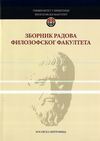Media and Global Age – in the Service of Democracy or Profit
Abstract
Uniform styles and forms of life, global culture and worldview define the time we live in. We have been caught by the flow of globalization which is inevitably polarizing and hierarchizing the world. There are two parallel processes in that world: on one hand - globalization of power and prestige, on the other, poverty and lack of prospects. Neoliberalism in all spheres of life - from economy to culture—recognised as Americanization of the world, wants to present itself as a synonim for freedom and democracy. We witness that in the process of globalization profit is devouring everything, poverty is increasing, solidarity and equality are disappearing, technological progress and industrialization of life and culture are suppressing the labor, number of the unemployed is growing incredibly, an individual is deteriorating rapidly, ethical values are degraded. Totalitarianism and production obedience are acting, intellectual critical awareness is retreating and the presented experts are becoming the best interpreters of owner’s desires and intentions—“spiritual militia of authority” (Julien Benda). In such circumstances, this question is imposed: what happens to the media? Is its role to inform citizens so they could make productive decisions (to contribute to development of democracy), or to misinform and confuse them, drag their attention “making the unimportant important” and then to mediate between the citizens and the manipulators who use the media to make an offer which cannot be refused thus placing citizens in the service of profit?
References
Антонић, С. (2013). „Пинк транзиција у Србији: Шест теза за разумевање наших културних прилика”. Култура, (140), 272–292.
Вуковић, С. (2009). Eтика западних медија. Нови Сад: Издавачка књижарница Зорана Стојановића.
Galbraith, J. K. (1987). Anatomija moći. Zagreb: Stvarnost.
Gunter, B. (2002). Media sex: what are the issues? Mahwah, New Jersey: Lawrence Erlbaum Associates, Inc.
Зиновјев, А. (1999). Велика прекретница – критика западне хегемоније. Београд: Наш дом.
Иљин, И. (2001). У потрази за праведношћу, Цетиње: Светигора.
Јевтовић, З. (2003). Јавно мњење и политика, Београд: Академија лепих уметности, Центар за савремену журналистику.
Попер, К. (1994). Отворено друштво и његови непријатељи, Београд: БИГЗ.
Рељић, С. (2013). „Концентрација власништва и промена карактера и улоге медија”. Социолошки преглед, 1/2013, стр. 109–122.
Sennett, R. (2006). The culture of the new capitalism. New Haven: Yale University Press.
Стиглиц, Џ. (2002). Противречности глобализације, Београд: СМБ–х.
Shah, A. (2009). Media Conglomerates, Mergers, Concentration of Ownership. Global Issues, www.globalissues.org/article/159/media-conglo merates-mergers-concentration-of-ownership
Swaffield, B. (2011). Making the case for what can and should be published. The handbook of global communication and media ethics, Volume I. USA: Blackwell Publishing Ltd (452–460).
Токвил, А. (1994). Стари режим и револуција, Сремски Карловци: Издавачка књижарница Зорана Стојановића.
Токвил, А. (2002). Демократија у Америци, Сремски Карловци: Издавачка кућа Зорана Стојановића.
Устав Републике Србије (2006). Службени гласник Републике Србије, број 35/2006.
Франкфурт, Х. Г. (2006). О просеравању, Нови Сад: Вега медиа.
Heath, R. (2005). Encyclopedia of public relations, London: SAGE Publications.
Чејмберс, Д. (2007). Kритички приступ медијима – промена контекста истраживачког новинарства, Београд: Clio.
Шуваковић, У. (2014). Транзиција. Косовска Митровица: Филозофски факултет.
The details about the publication policy, including copyright and licensing, are available at:

